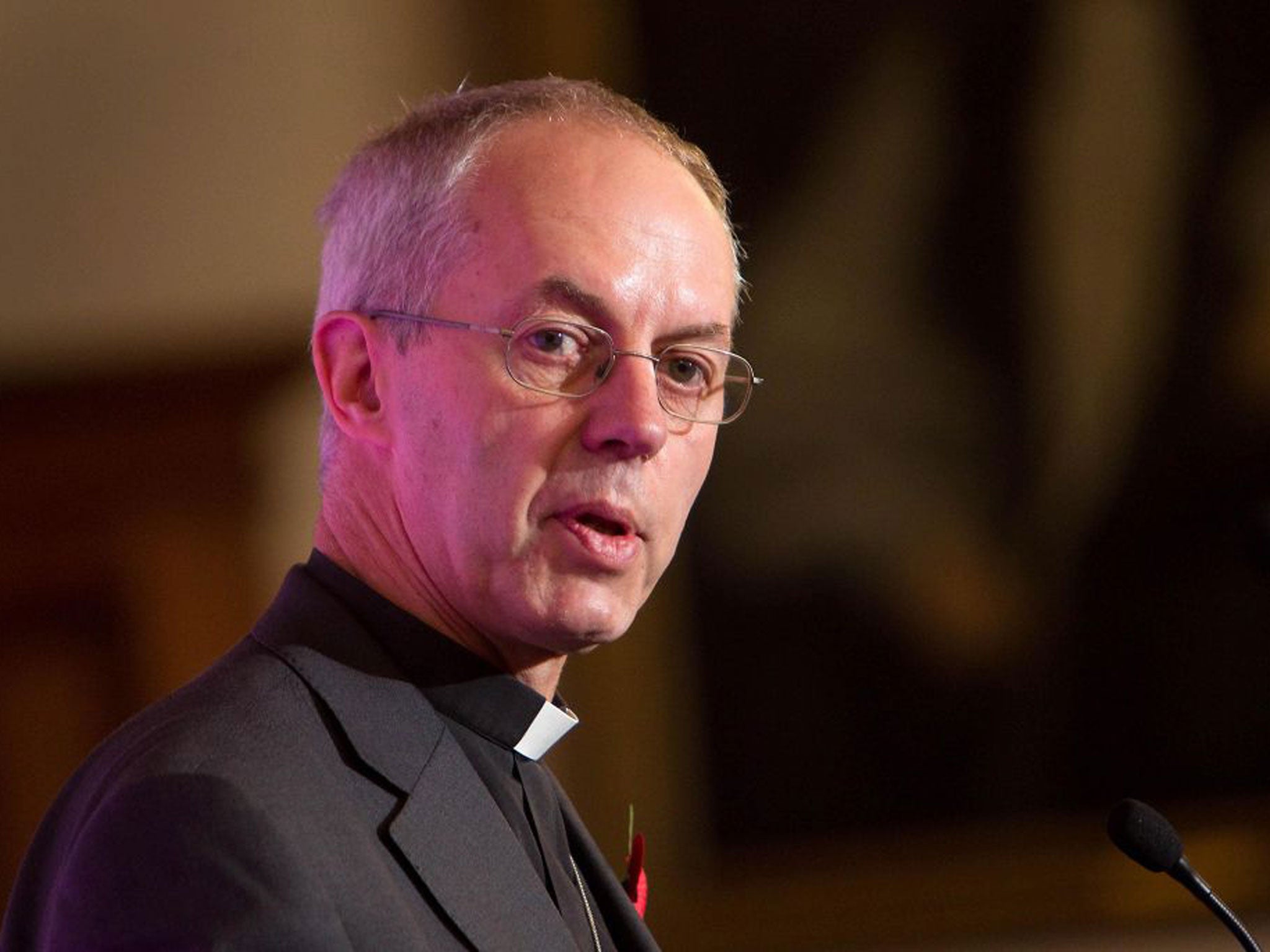Brexit legislation could set ‘disastrous precedent’, archbishops warn in open letter
Archbishops warn bill could ‘further undermine trust and goodwill’ among home nations

Your support helps us to tell the story
From reproductive rights to climate change to Big Tech, The Independent is on the ground when the story is developing. Whether it's investigating the financials of Elon Musk's pro-Trump PAC or producing our latest documentary, 'The A Word', which shines a light on the American women fighting for reproductive rights, we know how important it is to parse out the facts from the messaging.
At such a critical moment in US history, we need reporters on the ground. Your donation allows us to keep sending journalists to speak to both sides of the story.
The Independent is trusted by Americans across the entire political spectrum. And unlike many other quality news outlets, we choose not to lock Americans out of our reporting and analysis with paywalls. We believe quality journalism should be available to everyone, paid for by those who can afford it.
Your support makes all the difference.The government's controversial new Brexit legislation could set "a disastrous precedent" if passed in its current form, archbishops have warned in a joint letter.
The five senior church leaders, including the Archbishop of Canterbury Justin Welby, said the decisions implemented in the UK Internal Market Bill would "profoundly affect" the relationship between the four nations of the United Kingdom.
The bill sets out the way that trade within the UK will work once it is outside the EU's single market and customs union.
But it also threatens to breach international law by overriding key parts of the European Union Withdrawal Agreement.
Writing in the Financial Times, the archbishops said they wished to "highlight the grave responsibility" of peers in the House of Lords as they debate the bill on Monday.
"The bill represents a profound shift in how trading relationships within the UK will be regulated and governed," the archbishops said.
"This will not be a return to a trade regime that existed before UK joined the EU, it will be an entirely novel system, replacing one that evolved slowly and by careful negotiation over decades."
They warned that if the Bill is made law without the consent of the devolved administrations it would "further undermine trust and goodwill" among those governing the different parts of the UK.
In a report published on Friday by the House of Lords select committee on the constitution, peers said ministers should listen to the concerns of the devolved administrations over the bill and amend it accordingly.
The three devolved administrations of the UK have raised concerns over the bill, with the Scottish government describing the legislation as a "power grab".
The archbishops said in their letter: "The bill is, of course, not just concerned with domestic law. It currently asks the country's highest law-making body to equip a government minister to break international law. This has enormous moral, as well as political and legal, consequences.
"We believe this would create a disastrous precedent. It is particularly disturbing for all of us who feel a sense of duty and responsibility to the Good Friday (Belfast) Agreement — that international treaty on which peace and stability within and between the UK and Ireland depends."
The archbishops said that through the bill, the UK government was preparing to breach the Northern Ireland Protocol, which had been agreed to facilitate the UK's departure from the EU.
Their letter said: "If carefully negotiated terms are not honoured and laws can be 'legally' broken, on what foundations does our democracy stand?
"We urge lawmakers to consider this bill in the light of values and principles we would wish to characterise relationships across these islands long after the transition period."
The Archbishop of Armagh, John McDowell, the Archbishop of Wales, John Davies, the Primus of the Scottish Episcopal Church, Mark Strange, and the Archbishop of York, Stephen Cottrell, also signed the letter.



Join our commenting forum
Join thought-provoking conversations, follow other Independent readers and see their replies
0Comments